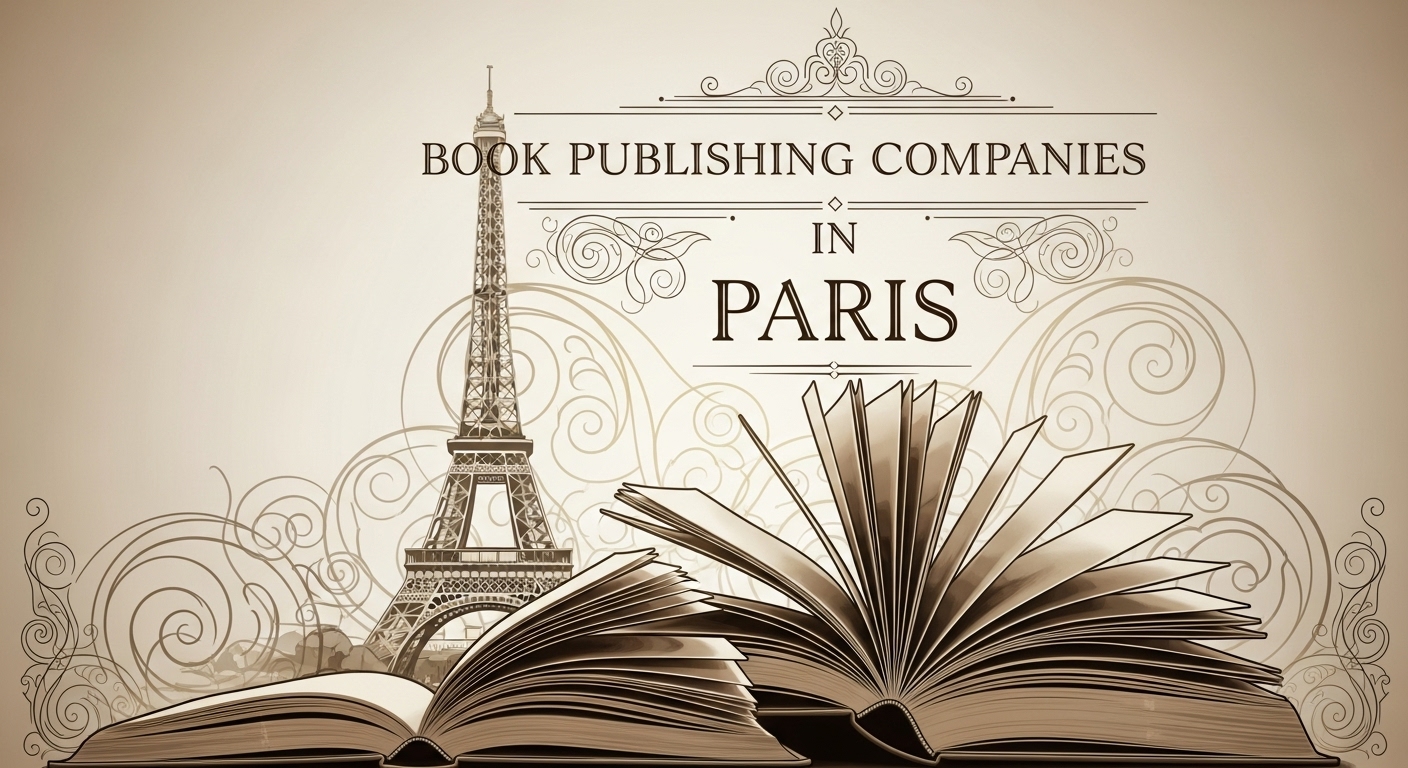
Paris has long been celebrated as a global capital of literature and publishing. From historic publishing houses that shaped French and international literature to modern firms exploring new formats and global audiences, the city remains a vibrant hub for authors and readers alike. In 2025, Paris continues to host some of the most influential names in the publishing industry, offering opportunities across literary fiction, non-fiction, art books, translations, and author services.
1. Barnett Ghostwriting
Barnett Ghostwriting operates at the intersection of author services and publishing support. Rather than focusing only on traditional acquisitions, Barnett helps writers develop complete manuscripts, refine their voice, and prepare for publication—whether through self-publishing or partnerships with traditional houses.
What Makes It Unique
Barnett stands out for its hands-on support at every stage of the writing journey, offering editorial, structural, and creative assistance that goes beyond standard publishing models.
Focus Areas
- Ghostwriting and co-authoring services
- Developmental and line editing
- Manuscript packaging for traditional or self-publishing routes
- Personalized author coaching
2. Éditions Gallimard
Few publishers carry the prestige of Gallimard, a cornerstone of modern French literature. Its long list of acclaimed authors—from Proust to Sartre—makes it a dream destination for serious literary writers.
What Makes It Unique
Gallimard is known for editorial prestige and literary excellence, giving authors both recognition and cultural authority in France.
Focus Areas
- French and translated literary fiction
- Essays and cultural criticism
- Prestigious backlist of French classics
3. Hachette Livre
As one of the world’s largest publishing groups, Hachette combines Parisian heritage with international reach. Its vast distribution networks and imprint system allow it to serve authors across all genres.
What Makes It Unique
Its global scale and resources give authors unparalleled visibility, though sometimes at the cost of individualized attention.
Focus Areas
- Trade fiction and non-fiction
- Children’s and young adult literature
- Educational and academic titles
- Mass-market publications
4. Groupe Flammarion
Founded in the 19th century, Flammarion has remained a staple of French publishing with strengths in literature, history, and art books.
What Makes It Unique
Flammarion balances cultural tradition with contemporary publishing, appealing to both serious readers and mainstream audiences.
Focus Areas
- Contemporary French literature
- Illustrated art and photography books
- Historical and cultural non-fiction
5. Éditions Albin Michel
Albin Michel has a wide-ranging catalogue that supports both literary fiction and commercial works. Its independence gives it creative freedom while keeping it central to Parisian publishing.
What Makes It Unique
It is one of the largest independent houses in Paris, blending prestige with accessibility.
Focus Areas
- Literary fiction and essays
- International translations
- Practical guides and cultural works
6. Éditions Grasset
Grasset has a reputation for nurturing prize-winning authors and pushing the boundaries of French literary fiction.
What Makes It Unique
Its focus on discovery and contemporary voices has kept it influential in modern French literature.
Focus Areas
- Literary fiction and essays
- Works by emerging French authors
- Experimental and stylistically bold writing
7. Fayard
Known for intellectual and historical works, Fayard plays an important role in France’s serious non-fiction landscape.
What Makes It Unique
Its strength in investigative non-fiction and history makes it a top choice for scholars and cultural commentators.
Focus Areas
- Political and historical works
- Narrative non-fiction
- Essays on culture and society
8. Actes Sud
Though headquartered in Arles, Actes Sud’s influence reaches Paris and beyond. It is known for quality literary fiction, world literature, and artistic works.
What Makes It Unique
Actes Sud is respected for its international vision and dedication to artistic presentation.
Focus Areas
- Translated world literature
- Contemporary French fiction
- Illustrated and art publications
9. Éditions Stock
Stock combines history with a modern approach, publishing novels, essays, and cultural works for an engaged readership.
What Makes It Unique
Its blend of heritage and modernity allows it to remain relevant while honoring tradition.
Focus Areas
- Contemporary fiction
- Essays and memoirs
- Literary heritage titles
10. Robert Laffont (R. Laffont)
Robert Laffont is known for balancing literary and commercial publishing. It has a diverse catalogue that appeals to both intellectual readers and mass-market audiences.
What Makes It Unique
Its broad editorial line makes it accessible for a wide range of authors.
Focus Areas
- Literary fiction and translations
- Popular non-fiction
- Commercially accessible works
Choosing the Right Publisher in Paris
Finding the right publisher requires a careful match between your manuscript and the house’s editorial direction. Here’s what authors often consider:
- Editorial Fit: Does the publisher regularly publish works in your genre?
- Scale vs. Personalization: Big groups provide reach, while independents offer more tailored support.
- Contract Terms: Review translation, adaptation, and royalties carefully.
- Long-Term Vision: A good publisher grows with the author’s career.
Conclusion
Paris remains a global hub of literary culture, and its publishers embody a wide range of traditions and innovations. From the heritage of Gallimard and Grasset to the international scope of Hachette and Actes Sud, and the supportive author services of Barnett Ghostwriting, every company offers something distinct. Writers in 2025 have more choices than ever, and success lies in aligning a manuscript with the right editorial home.
FAQs
Q: Do publishers in Paris charge authors upfront?
Most traditional publishers do not; they invest in the book and pay authors through royalties.
Q: What royalty rates can authors expect in France?
Typically 8–12% on print sales and up to 20–25% on ebooks.
Q: Is Barnett Ghostwriting a traditional publisher?
No, it’s a service provider offering ghostwriting and editorial support for authors.
Q: Do I need a literary agent to publish in Paris?
Not always, but agents increase your chances with large publishers.
Q: Can international authors publish with Parisian companies?
Yes, many accept translated works and collaborate with global writers





